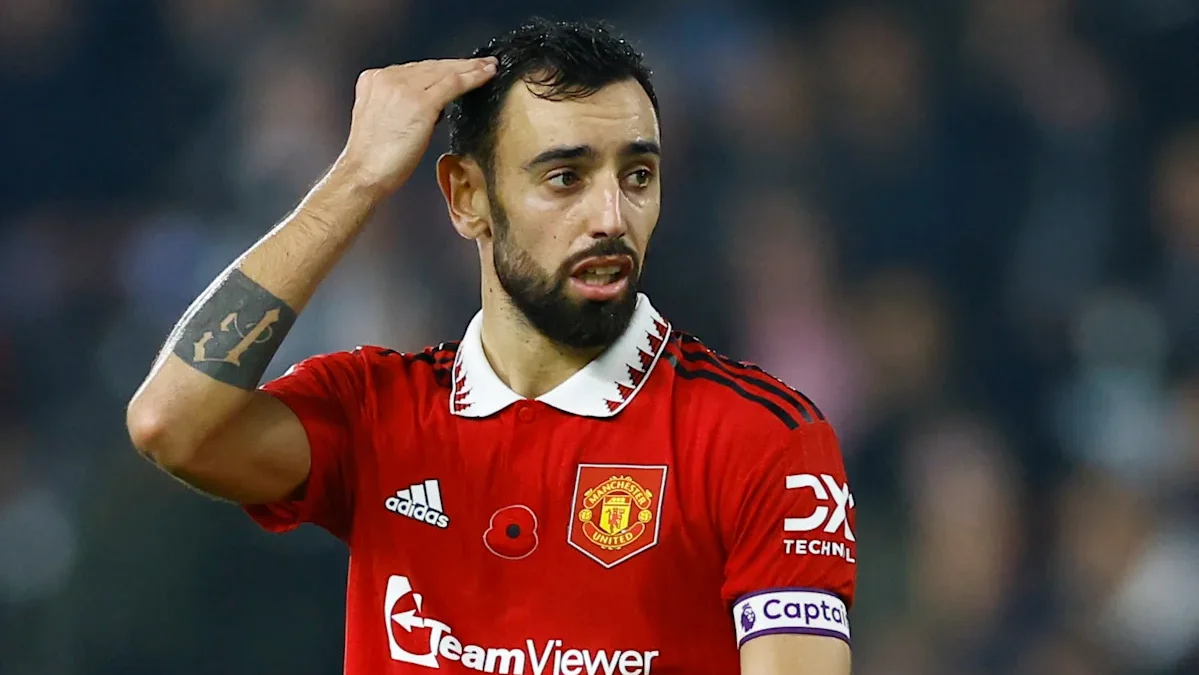Bruno Fernandes Condemns Qatar’s Treatment of World Cup Workers
Manchester United and Portugal star voices concern over labor abuses ahead of FIFA World Cup 2022
As excitement built for the FIFA World Cup 2022, Manchester United and Portugal midfielder Bruno Fernandes spoke openly about his concerns regarding the conditions in Qatar. In an interview with Sky Sports, Fernandes did not hide his disappointment with how the host country treated workers who helped build the tournament’s stadiums and infrastructure.
“We know the surroundings of the World Cup, what has been in the past few weeks, past few months, about the people that have died on the construction of the stadiums. We are not happy about that at all,” Fernandes said. His comments reflected a growing discomfort among players, fans, and human rights organizations worldwide.
(Source: BBC News)
Qatar, a small but wealthy Middle Eastern nation, faced significant global criticism over its treatment of migrant workers. Since being awarded the World Cup in 2010, Qatar embarked on a massive construction spree, building new stadiums, roads, hotels, and even an entirely new city to host the event. Most of this work was carried out by migrant laborers from countries like India, Bangladesh, Nepal, and Kenya.
However, numerous investigations revealed troubling conditions. Workers often endured extreme heat, unsafe workplaces, and lived in crowded, unsanitary housing. In many cases, they were paid poorly — or not at all — and worked long hours without proper breaks.
(Source: The Guardian)
A 2021 investigation by The Guardian estimated that around 6,500 migrant workers had died in Qatar since 2010. The report gathered data from the workers’ home countries. Although Qatar disputed these numbers, claiming only 37 deaths were work-related, the stark difference raised serious concerns about transparency and accountability.
Despite international pressure, including from labor unions and human rights groups, conditions remained difficult for many workers even as the tournament approached.
Reforms Introduced, But Were They Enough?
Under pressure, Qatar introduced a series of reforms meant to improve labor conditions. These included setting a minimum wage — the first in the region — and dismantling the controversial kafala system, which had previously tied workers’ legal status to their employers. The kafala system had been widely criticized as a form of modern-day slavery.

Qatar also promised greater protections for workers, such as better heat regulations and easier pathways to switch jobs without employer permission.
However, organizations like Amnesty International and Human Rights Watch reported that while some improvements were made on paper, the reforms were often poorly enforced. Many workers continued to experience late payments, unsafe conditions, and threats when they tried to report abuses.
According to Amnesty International, “The reality for many migrant workers on the ground has not changed significantly. Exploitation remains rampant.”
(Source: Amnesty International, The Guardian)
Players Speaking Out
Bruno Fernandes was one of the few active players who spoke candidly about the situation before the tournament began. His comments were echoed by other footballers and national teams, who wore symbolic armbands or made public statements advocating for workers’ rights and inclusion.
Fernandes stressed that football should be a celebration for everyone, not just the privileged few. “We want football to be for everyone. Everyone has to be included and involved in a World Cup because a World Cup is the world. It’s for everyone, it doesn’t matter who,” he said.
(Source: BBC News)
Other players, including England’s Harry Kane and Germany’s national team, also found quiet ways to show solidarity. Some teams planned protests, wore “One Love” armbands, or held banners highlighting human rights issues.
A Broader Debate: Human Rights and Global Sport
The situation in Qatar fueled a broader debate about the responsibility of global sporting bodies like FIFA when selecting host nations. Critics argued that awarding tournaments to countries with poor human rights records sends the wrong message and indirectly condones abuses.
FIFA, for its part, maintained that it was pushing Qatar toward positive change by engaging with the country rather than excluding it. However, many activists and fans found this argument unconvincing.
As the tournament kicked off, the world’s attention was not just on the pitch, but also on the workers who made it all possible — many of whom suffered and sacrificed without ever getting to see a match.
Bruno Fernandes’s honest remarks reminded fans and players alike that while football is a game meant to bring people together, it must also be grounded in fairness, dignity, and respect for every human life involved.
For more information click here
Qatar Royal Family Wins Legal Battle Over Iconic Idol’s Eye Diamond



